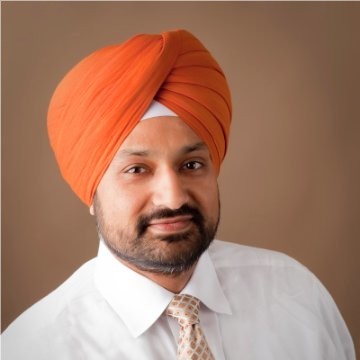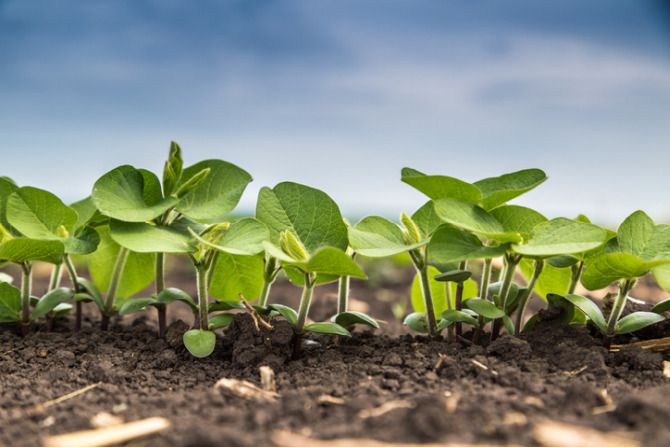Vancouver-based farm data analytics and precision ag firm Almanac has acquired the IP and assets of ag intelligence platform Gro Intelligence, which closed down in late spring after running out of money.
Almanac, formerly Semios, has been steadily boosting its core crop management platform through strategic acquisitions in recent years, acquiring farm management software co Agworld, ag automation software co Altrac, and field data collection tech co Centricity.
While Almanac already delivers real-time climate, pest, and water data through a network of over 500,000 sensors collecting real-time private data on weather, soil moisture, insect activity, and disease presence at customers’ farms, Gro Intelligence’s assets and AI models will complement these offerings by overlaying information from public data sets, CEO Sumer Johal told AgFunderNews.
Public data sets layered on top of private data sets
“Globally, we have a massive footprint of over 130 million acres across two continents,” said Johal, who took the helm at Almanac in October 2023. “Our core stakeholders in the agriculture space largely have been using us for their private data sets, their planning, their compliance, their sprays, their fertilizer plans, etc, as well as our IoT networks for providing real time actionable intelligence on their fields for pest and disease pressure, water pressure, fertilizer needs, and so on.
“What the added layer of Gro Intelligence assets does is bring public data sets that have agronomic relevance on top of those private data sets for the benefit of the same stakeholders and users that we have.”
He added: “We acquired the assets through an auction, so we’ve acquired the brand name, all the data sets, the customer contacts, essentially all the assets, and none of the liabilities. Our first order of business is to take these assets and focus their use cases around the use cases we already serve and then we are going to pay more attention towards other stakeholders that might benefit from these combined data sets, or just the public data, so we are very interested, of course, in the CPG space [Gro’s largest customer was understood to be Unilever].”
“We’re also very interested in agriculture finance and insurance, food security, and managing supply chain risks in consumer packaged goods, but we’re not going to lose our focus on our core customer base, as this is one of the things that we think Gro didn’t do very well, and we don’t want to make the same mistake. We really want to focus in on the problems that our customers are facing, and solve those problems, rather than have a solution looking for a problem.”
Almanac “didn’t really acquire grow for its customer base,” he observed. “We acquired it for its data sets and models and how they apply to our customer base. But we’re engaging with Gro’s existing customers that wish to re-engage and rejuvenate the value they were getting from Gro.
“This acquisition is a quantum leap for Almanac in our mission to revolutionize agricultural practices through advanced technology. By integrating Gro’s robust AI-powered data platform within our own, we are aiming to enhance our ability to deliver actionable insights across the global agricultural sector, driving sustainability and productivity for agriculture professionals everywhere.” Sumer Johal, CEO, Almanac
Data must be integrated and actionable

To be of value, noted Johal, data have to be integrated with stakeholders’ systems, and actionable. “Public data is hard to get, and then when you get it, maybe it doesn’t work in your platform, and then private data is in another platform, and then you have all these other apps and things that don’t always talk to each other.
“This is the challenge that our stakeholders and our customers have traditionally faced. They come to our platform for a unified experience, and that’s one of the reasons why we have done really well in terms of attracting, retaining, and growing that customer base, which is now a paying base of over 130 million acres across two continents.”
He added: “And so it really is with that focus on customer value creation, where we will layer private data sets that customers use our systems for with a huge treasure trove of public data and models that Gro Intelligence has created to create more value.”
The rebrand: ‘customers were confused’
Semios rebranded as Almanac a couple of months ago “as we realized that a lot of our customer base didn’t know about the other brands we [Semios] had acquired,” said Johal, who also serves as the executive director of AgStack at The Linux Foundation, an open-source digital infrastructure for food and agriculture. “Customers were confused, so we rebranded ourselves as Almanac with the intention of enabling food intelligence at scale through data and relationships.
“It was really an effort to unify, clarify and simplify our customer base’s understanding of our product offering and the value we really create for them on each acre, at scale.”
Regional focus
Almanac’s core focus is on North America and Australia, said Johal. “However, we have some early growth in Europe and a little bit in Africa. And then opportunistically we may look at South America, Asia, India.
“We have growers, advisors who advise growers, agriculture companies, input providers, seed providers, water companies, as our customers, but we haven’t really gotten into yet, supply chain dynamics and looking at downstream effects, although this is a very interesting, exciting area of growth for us.”
Gro Intelligence
Founded by energy commodities trader Sara Menker in 2012, Gro Intelligence was an AI-powered insights company providing decision-making tools and analytics to a range of clients from food & ag companies to governments, insurers, investment banks, consulting firms and universities.
The firm, which Menker claimed had “ended up building the world’s largest climate data platform without even knowing it,” scraped data from governments, trade organizations, weather and geological agencies, commodities and financial markets to provide actionable insights.
To predict crop yields, for example, Gro combined satellite imagery with data on rainfall, drought, vegetative health and density, soil moisture and land surface temperature, and data from USDA’s National Agricultural Statistics Service (NASS), or Brazil’s IBGE, the Brazilian Institute of Geography and Statistics.
According to one industry source who spoke to us earlier this year, Gro “has a great product and a good group of intelligent people behind it, but I’m not sure they know how to sell it… They started off as a data aggregator of agricultural data and have now incorporated a ton of climate data.”





